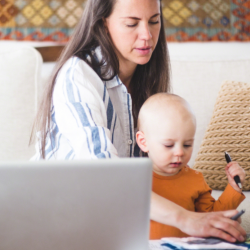To provide the best experiences, we use technologies like cookies to store and/or access device information. Consenting to these technologies will allow us to process data such as browsing behaviour or unique IDs on this site. Not consenting or withdrawing consent, may adversely affect certain features and functions.
The technical storage or access is strictly necessary for the legitimate purpose of enabling the use of a specific service explicitly requested by the subscriber or user, or for the sole purpose of carrying out the transmission of a communication over an electronic communications network.
The technical storage or access is necessary for the legitimate purpose of storing preferences that are not requested by the subscriber or user.
The technical storage or access that is used exclusively for statistical purposes.
The technical storage or access that is used exclusively for anonymous statistical purposes. Without a subpoena, voluntary compliance on the part of your Internet Service Provider, or additional records from a third party, information stored or retrieved for this purpose alone cannot usually be used to identify you.
The technical storage or access is required to create user profiles to send advertising, or to track the user on a website or across several websites for similar marketing purposes.
 One of the most significant consequences of the 2008 economic crash was a remarkable shift in the nature of employment. The recession led to a surge in the number of people categorised as self-employed. The numbers have been increasing ever since, albeit at a lower rate. By the end of 2019, the number of self-employed people in the UK exceeded five million people for the first time. Fifteen percent of the workforce. (more…)
One of the most significant consequences of the 2008 economic crash was a remarkable shift in the nature of employment. The recession led to a surge in the number of people categorised as self-employed. The numbers have been increasing ever since, albeit at a lower rate. By the end of 2019, the number of self-employed people in the UK exceeded five million people for the first time. Fifteen percent of the workforce. (more…)







 Individuals with low mindfulness exhibit more uncivil behaviour at work and are least civil on Monday before improving throughout the week, claims new research from
Individuals with low mindfulness exhibit more uncivil behaviour at work and are least civil on Monday before improving throughout the week, claims new research from 
 The pandemic has certainly opened our eyes to the importance of constantly washing our hands, sterilising everything in sight and realising just how far germs can travel through the air, causing us to wince at the thought of a time where we huddled on public transport without masks. However, as we contemplate heading back to the office in the near future, businesses need to translate these learnings into workplace design and move indoor air quality to the top of the agenda.
The pandemic has certainly opened our eyes to the importance of constantly washing our hands, sterilising everything in sight and realising just how far germs can travel through the air, causing us to wince at the thought of a time where we huddled on public transport without masks. However, as we contemplate heading back to the office in the near future, businesses need to translate these learnings into workplace design and move indoor air quality to the top of the agenda. 
 Oliver has been with
Oliver has been with 
 New data from
New data from 
 New
New 
 New research by
New research by 


 Until recently, the nature of business was widely predictable. Tried and tested operational methods enabled businesses to forward plan confidently based on what had worked before. Even before the cataclysmic events of the global pandemic, the workplace landscape was shifting dramatically, with innovation, disruption, workforce and consumer expectations evolving at a pace. As we enter 2021, every business will need to rapidly adapt and evolve to survive and workforce agility will be a critical factor for that survival.
Until recently, the nature of business was widely predictable. Tried and tested operational methods enabled businesses to forward plan confidently based on what had worked before. Even before the cataclysmic events of the global pandemic, the workplace landscape was shifting dramatically, with innovation, disruption, workforce and consumer expectations evolving at a pace. As we enter 2021, every business will need to rapidly adapt and evolve to survive and workforce agility will be a critical factor for that survival. 
 The UK Green Building Council (
The UK Green Building Council (
 Employees could save over £2,200 a year and ‘get back’ 98 mins a day if companies adopted a ‘Work Near Home’ model for offices in the future, claims research from workspace company,
Employees could save over £2,200 a year and ‘get back’ 98 mins a day if companies adopted a ‘Work Near Home’ model for offices in the future, claims research from workspace company, 
 As employees continue to be forced home during the pandemic, nearly half of them are reporting high levels of exhaustion. A new study by
As employees continue to be forced home during the pandemic, nearly half of them are reporting high levels of exhaustion. A new study by 







